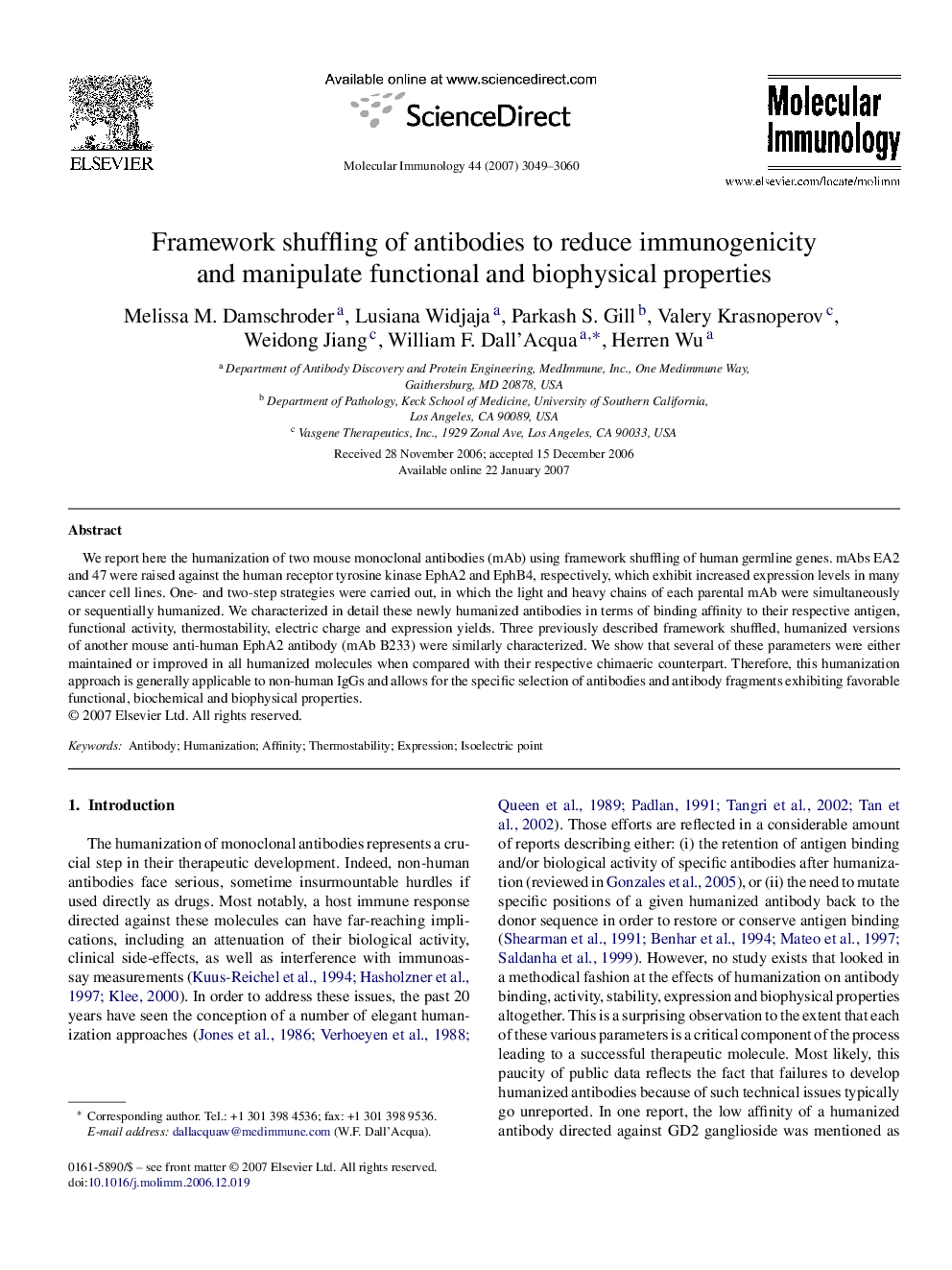| Article ID | Journal | Published Year | Pages | File Type |
|---|---|---|---|---|
| 2832314 | Molecular Immunology | 2007 | 12 Pages |
We report here the humanization of two mouse monoclonal antibodies (mAb) using framework shuffling of human germline genes. mAbs EA2 and 47 were raised against the human receptor tyrosine kinase EphA2 and EphB4, respectively, which exhibit increased expression levels in many cancer cell lines. One- and two-step strategies were carried out, in which the light and heavy chains of each parental mAb were simultaneously or sequentially humanized. We characterized in detail these newly humanized antibodies in terms of binding affinity to their respective antigen, functional activity, thermostability, electric charge and expression yields. Three previously described framework shuffled, humanized versions of another mouse anti-human EphA2 antibody (mAb B233) were similarly characterized. We show that several of these parameters were either maintained or improved in all humanized molecules when compared with their respective chimaeric counterpart. Therefore, this humanization approach is generally applicable to non-human IgGs and allows for the specific selection of antibodies and antibody fragments exhibiting favorable functional, biochemical and biophysical properties.
